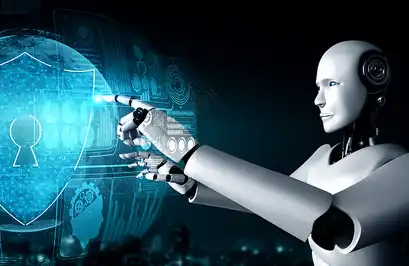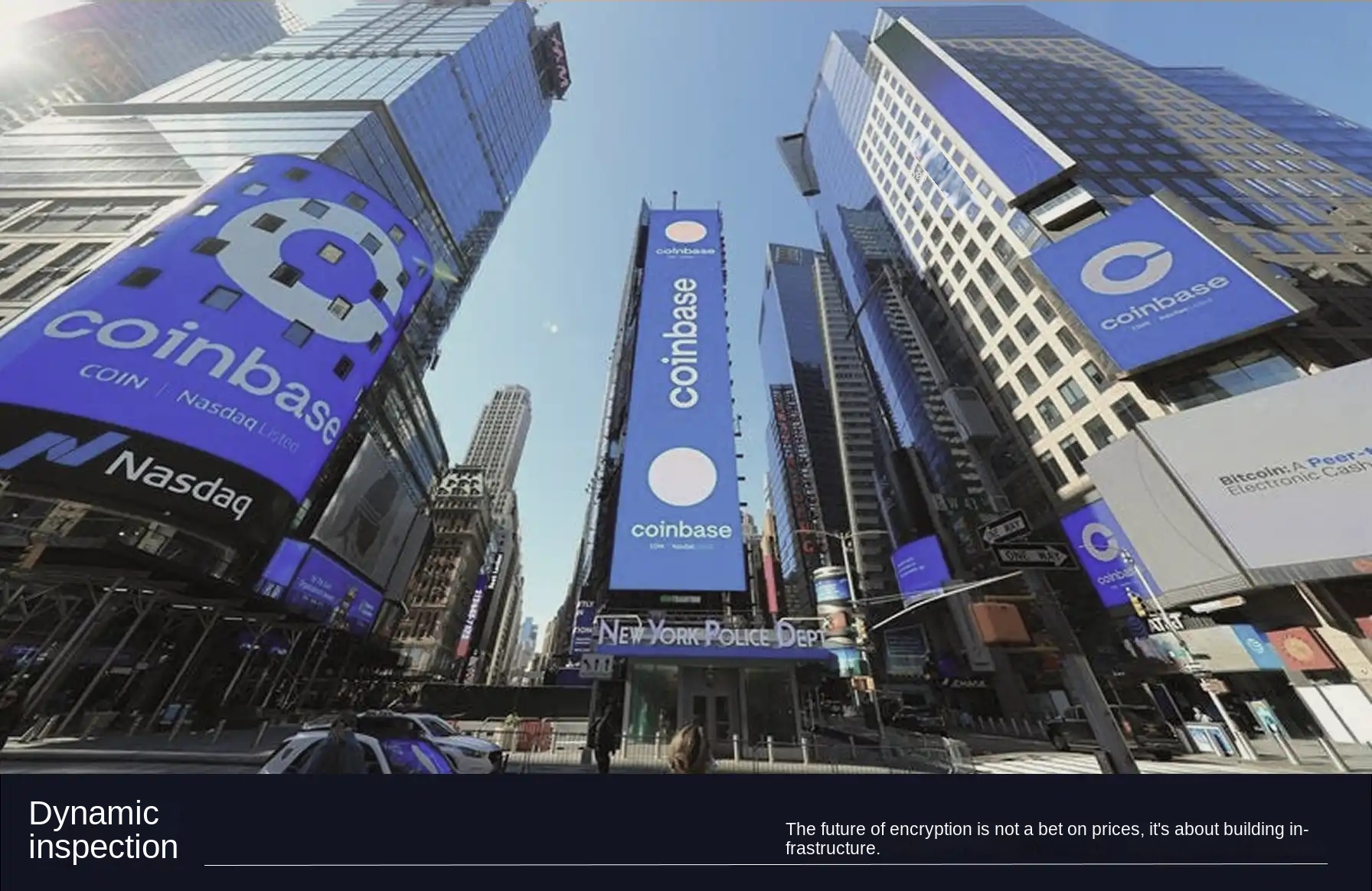Vitalik Buterin’s 2020 summary: How to re-evaluate how the world works?
Original title: "Endnotes on 2020: Crypto and Beyond"
Original author: Vitalik Buterin
Compiled by: 0x33, 0x13, rhythm BlockBeats
When writing this article, I was living in Singapore. I spent nearly half a year in this city of Singapore. Although half a year is not long for many people, for me, it is the longest time I have stayed in a foreign place in the past decade.
After a long battle, the new crown epidemic, which may be the first boss-level epidemic faced by mankind since 1945, seems to have been brought under control, and the city has begun to return to normal. Although, for the 7.8 billion people in the world, some areas are still facing severe situations, but now there is a glimmer of light in the darkness. The rapid development and promotion of the new crown vaccine will help mankind complete this arduous challenge.
2020 has been a magical year for all the events that have happened. As AFK has made people's lives more restrained and challenging, the development of the Internet has begun to become extraordinary, with mixed consequences.
Politics around the world has also gone in a strange direction, and I am constantly worried about the prospects of many political factions, and some politicians have no hesitation in abandoning the basic principles they should abide by for their own selfish interests. At the same time, however, some unusual dark corners are shining with hope. The birth of these new technologies in transportation, medicine, AI, and of course blockchain and encryption may open a new chapter in human development.

We started from here

Where We're Going
So 2020 is a great time to think about key questions: How should we reassess the way the world works? Which ways of looking at, understanding, and reasoning about how the world works will be more useful in the coming decades, and which ways will no longer be as valuable? Which ways we haven't seen before, but have always been valuable?
In this article, I will give some of my own answers. Although my ideas may not be comprehensive, I will dig deep into some interesting content. Moreover, it is difficult to draw a clear dividing line between which of these ideas are based on the understanding of changes in reality and which are just my own long-term observations. In most cases, it is a combination of the two. I think the answers to these questions have profound significance both in the field of encryption and in the broader field.
The changing role of economics
Economics has always been concerned with "goods" in physical form: food, small parts for manufacturing, houses that are bought and sold, etc. Physical assets have some special properties: they can be transferred, destroyed, bought and sold, but they cannot be copied. It is unrealistic for one person to use an item that another person is using. Many items are only valuable when they are directly "consumed".
The resources required to make ten copies of a physical object can be regarded as ten times the resources required to make one copy (almost ten times, and the larger the scale, the closer it is). But on the Internet, the rules that apply are completely different. Copying once on the Internet is easy. I can easily copy an article or a piece of code, although writing an article or a piece of code requires considerable effort. But when an article or a piece of code is completed, countless people can download and use it. They are not "consumables". Although they may be replaced by better products later, they can provide value to people forever before being replaced.
In the Internet, "public goods" occupy a major position. Of course, there are private goods on the Internet, especially those in the form of scarce personal attention and events and virtual assets. But in general, most of the goods on the Internet are one-to-many, not one-to-one. What makes the situation more complicated is that the so-called "many" rarely map easily to our traditional one-to-many interaction structures, such as companies, cities, or countries; instead, these public goods are usually used publicly among widely dispersed people around the world.
Many online platforms that serve a wide range of people need to be governed to decide on their features, content moderation policies, or other measures that are important to their user communities. But on these platforms, user communities rarely map cleanly onto anything other than themselves. How can the US government fairly govern Twitter when it often becomes a platform for public debates between US politicians and representatives of geopolitical adversaries? But clearly, governance challenges remain, so we need more creative solutions.
This is not just of interest to "pure" online services. While goods in the physical world such as food, housing, healthcare, transportation, and so on remain as important as ever, improvements in these goods are even more dependent than ever on technology, and technological progress is indeed enabled by the Internet.

In the Ethereum ecosystem, there are examples of important public goods funded by the recent Gitcoin rounds. The open source software ecosystem, including blockchains, relies heavily on public goods.
But at the same time, economics itself seems to be a less powerful tool for dealing with these problems. Of all the challenges in 2020, how many can be understood by looking at supply and demand curves?
One way to understand what is going on is by looking at the relationship between economics and politics. In the 19th century, the two were often seen as linked together, and the discipline was called "political economy." In the 20th century, the two were separated. But in the 21st century, the line between "private" and "public" has blurred again. Governments are behaving more like market actors, and corporations are behaving more like governments.
We are seeing this convergence begin to happen in crypto, as researchers increasingly focus on the challenges of governance. Five years ago, the main economic topics being explored in crypto were related to consensus theory. This was a well-targeted, actionable economics problem, so we get good, clear results on occasions, such as the selfish mining paper. Some subjective views (such as quantitative decentralization) exist, but they are easily encapsulated and treated separately from the formal mathematics of mechanism design.
But in the past few years, we have seen the birth of increasingly complex financial protocols and DAOs on blockchains, as well as governance challenges within blockchains. For example: Should BCH re-use 12.5% of its block rewards to pay the developer team? If so, who decides who this developer team is? Should Zcash extend its 20% developer reward for another four years? These questions can certainly be analyzed economically to a certain extent, but the analysis will inevitably be in a state of coordination for a long time, and constant adjustments. Concepts such as "Schelling points" and "legitimacy" are much more difficult to express in numbers. Therefore, a hybrid discipline is needed to combine formal mathematical reasoning with the softer style of humanistic reasoning.
We Wanted Digital States, But What We Got Was Digitalism
One of the most fascinating things I started noticing fairly early in crypto, starting around 2014, was how quickly it began to replicate the political model of the entire world. I don’t just mean in some broad abstract sense, i.e. “people are forming tribes and attacking each other”, I mean the similarities, and the depth and specificity of these similarities are surprisingly deep.
Let me start with a story. From 2009 to around 2013, the Bitcoin world was a relatively innocent and happy place. The community was growing rapidly, the price was rising, and disagreements about block size or long-term direction, while there were, were mostly academic and minor and nobody was holding on to them compared to the shared goals that helped Bitcoin grow and thrive.
But in 2014, the split began to emerge. Transaction volume on the Bitcoin blockchain reached 250 kilobytes per block and continued to rise, raising concerns for the first time that the blockchain usage limit might actually reach the 1MB limit before it could be increased. Non-Bitcoin blockchains, which had previously been a minor player, suddenly became a major part of the field, with Ethereum arguably the leader.
And it was because of these events that the previously calm divisions suddenly exploded. "Bitcoin maximalism" is the idea that the goal of the crypto space should not be a diverse cryptocurrency ecosystem, but only Bitcoin. This idea grew from a niche curiosity to a high-profile, angry movement, and Dominic Williams and I quickly saw it for what it was and gave it the name "Bitcoin maximalism." It advocates that no matter how high the transaction fees are, the block size should be increased very slowly, or even never increased. The idea of small blocks began to take root.
Bitcoin’s internal disagreements would soon turn into an all-out civil war. Theymos, one of the lead operators of the /r/bitcoin subreddit and several other key public bitcoin discussion spaces, used that position to impose extreme censorship and his (smaller-blocker) views on the community.
In response, big blockers moved to a new forum, /r/btc. Some valiantly tried to defuse tensions with diplomatic meetings, including a famous one in Hong Kong, that resulted in a seeming consensus, though a year later the small blockers would ultimately renege on the agreement. By 2017, the big blockers were firmly on the losing path, and in August of that year they forked off, pursuing their own vision on their own separate continuation of the bitcoin blockchain, which they called “Bitcoin Cash” (BCH). (Note from the rhythm: For the history of Bitcoin's first hard fork, please refer to the related article "Bitcoin Fork History")
The split of the community is chaotic, as can be seen from the split of communication channels after the fork. /r/bitcoin is controlled by Bitcoin (BTC) supporters. /r/btc is controlled by Bitcoin Cash (BCH) supporters. Bitcoin.org is controlled by Bitcoin (BTC) supporters. Bitcoin.com is controlled by Bitcoin Cash (BCH) supporters. Both sides claim to be the real Bitcoin. The result looks very much like those civil wars that often split a country in two, with both sides calling themselves almost identical names, except that each side's name is a different combination of the terms "Democracy", "People" and "Republic". Neither side has the ability to destroy the other, and there is certainly no higher authority to adjudicate the dispute.

The above chart shows the major Bitcoin forks, as of 2020, and does not include Bitcoin Diamond, Bitcoin Rhodium, Bitcoin Private, or any of the other long list of lesser-known Bitcoin forks that I strongly recommend you ignore completely or sell (and maybe you should also sell some of the forks listed above, BSV is an absolute scam!)
Around the same time, Ethereum also had a messy split in the form of the DAO fork, a controversial solution to the theft of over $50 million from Ethereum’s first major smart contract application. Just like in the Bitcoin case, there was internal strife, albeit only for four weeks, and then the blockchain fork, which resulted in two chains, Ethereum (ETH) and Ethereum Classic (ETC). The naming dispute is as interesting as Bitcoin: the Ethereum Foundation holds the ethereumproject account on Twitter, but Ethereum Classic supporters hold ethereumproject on Github.
Some people on the Ethereum side would argue that there are few "real" supporters of Ethereum Classic, and the whole thing is mainly a social attack by Bitcoin supporters: either support a version of Ethereum that matches their values, or cause chaos and destroy Ethereum directly. I myself believed these claims at first, but over time I gradually realized that these claims were over-exaggerated. While some Bitcoin supporters did try to shape the outcome in their own imagination, for the most part, as is the case in many conflicts, the "outsider interference" card was a psychological defense that many Ethereum supporters (including myself to some extent) subconsciously used to shield themselves, because many people within our own community do have different values. Fortunately, the relationship between the two projects has since improved, thanks in part to Virgil Griffith's excellent communication skills, and Ethereum Classic developers even agreed to move to another Github page.
Infighting, alliances, groups, alliances with infighting participants, you can see it all in the crypto space. Although fortunately, these conflicts are virtual and online, without the extremely harmful personal consequences that such things often bring when they happen in real life.
So what can we learn from these things?
One important implication is this: if phenomena like these occur in contexts as disparate as conflicts between nations, conflicts between religions, and the relationships within and between purely digital cryptocurrencies, then perhaps what we are seeing is an indelible manifestation of human nature, something that is much harder to fix than changing how we organize ourselves into groups. So we should expect to see this happen on many occasions over the coming decades. It may be harder than we think to distinguish the good and the bad that this may bring: the energy that drives us to fight also drives us to contribute.
What exactly is motivating us?
An important intellectual backdrop for the 2000s was the recognition of the importance of non-monetary motivations. People are motivated not just to make as much money as possible at work and to get enjoyment from money in family life; even at work we are motivated by social status, honor, altruism, reciprocity, sense of contribution, different social concepts of what is good and valuable, and so on.
These differences are very meaningful and measurable. For example, look at this Swiss study on the compensation gap for unethical work: How much extra would an employer have to pay someone to do a job if it was considered unethical?

We can see that the effect is huge: if a job is widely considered unethical, you need to pay employees almost twice as much to be willing to do it. Based on personal experience, I even think that double the salary is an underestimate: in many cases, top-notch workers will not be willing to work for a company they think is bad for the world at almost any cost.
There is a similar effect on "work" that is difficult to quantify (such as word of mouth marketing): if people think a project is good, they will do it for free, if they think it is bad, they will not do it at all. This is also likely why those blockchain projects that raise a lot of money but do whatever it takes, even the "VC chains" controlled by companies for profit, often fail: even with $1 billion in hand, they cannot compete with a project with soul.
That said, it is possible to be overly idealistic about this fact in several ways.
First, while the subsidies for decentralized, non-market, non-government, socially cognizable projects are enormous, perhaps reaching tens of trillions of dollars per year globally, its impact is not infinite. If a developer is faced with the choice between making $30k per year through “pure ideology” and a $30m ICO by inserting an unnecessary token into their project, they will choose the latter.
Second, the incentives for idealistic motivations are uneven. Rick Falkvinge’s Swarmwise highlights the possibilities for decentralized, non-market organizations by pointing to political activism as a key example. And it’s true that political activism doesn’t need to be paid. But longer, harder tasks, even something as simple as getting a good user interface right, are not so intrinsically motivating. So if you rely too much on intrinsic motivation, you’ll end up with projects where some tasks are over-achieved, while others are under-achieved or even ignored altogether.
Third, people’s perceptions of the intrinsic attractiveness of a job can change, and can even be manipulated.
For me, a big takeaway from this is the importance of culture (and that all-important word, “narrative,” which has been tragically ruined by crypto influencers). If a project has high moral standing, it’s the equivalent of having twice as much money or more, so culture and narrative are extremely powerful forces, commanding the equivalent of tens of trillions of dollars in value. And that’s not even covering the role this concept plays in shaping our perceptions of legitimacy and coordination.
So anything that affects culture has huge implications for the world and people’s economic interests, and we’re going to see more and more systematic and conscious efforts by a variety of actors to do this in ever more sophisticated ways. And that’s the dark conclusion to the importance of non-monetary social motivations: they create battlefields for permanent and final frontiers of wars that are fortunately not usually lethal, but unfortunately impossible to make peace treaties for, because of how subjective it is to decide what counts as a war, the culture wars.
Big XXX always exists
One of the most important debates of the 20th century was between "big government" and "big business" - various permutations of the two: Big Brother, Big Banks, Big Tech, etc. In this environment, great ideologies are usually defined as attempts to abolish various Big XXXs they don't like: such as corporate-centricism, anarcho-capitalist influence on government, etc.
Looking back at 2020, one might ask: which great ideologies succeeded and which failed?
Let’s look at a specific example: the 1996 Declaration of the Independence of Cyberspace:
“Governments of the industrial world, you tiresome giants of flesh and steel, I come from cyberspace, the new home of the mind. On behalf of the future, I ask you of the past to stop pestering us. We do not welcome you. You have no sovereignty where we gather.”
And the similarly minded crypto-anarchist manifesto:
"Computer technology is on the verge of providing individuals and groups with the ability to communicate and interact with each other in a completely anonymous manner. Two people can exchange information, conduct business negotiations, and sign electronic contracts without knowing the other person's real name or legal identity. Interactions on the network will be untraceable through widespread rerouting of cryptographic packages and tamper-proof boxes that implement cryptographic protocols with near-perfect assurance against any tampering."
Reputation will be critical, far more important in transactions than even today's credit ratings. These developments will completely change the nature of government regulation, the ability to tax and control economic interactions, the ability to keep information confidential, and will even change the nature of trust and reputation.
How have these predictions fared? The answer is interesting: I would say they succeeded in one regard, but failed in another.
So what was the success? We have networks for all kinds of interactions, we have strong cryptography that is hard to break even for state actors. We even have strong cryptocurrencies with smart contract capabilities that few thinkers in the 1990s could have anticipated, and we are moving more and more toward anonymous reputation systems with zero-knowledge proofs. What was the failure? Governments didn’t go away.
So what was completely unexpected?
Perhaps the most interesting plot twist is that the two forces are mostly at odds with each other. In general, they don’t act like mortal enemies, and there are many people even within governments who are seriously looking for ways to be friendly to blockchains and cryptocurrencies and new forms of encrypted trust.
What we saw in 2020: Big government is as powerful as ever, but so is Big Business. Big Protesters are as powerful as ever, as are Big Tech, and soon, maybe Big Crypto. It’s a densely populated jungle, with an uneasy peace among many complex actors.
If you define success as the disappearance of one powerful actor, or even one you don’t like, you’re likely to leave the 21st century disappointed. But if you define success more by what happens than what doesn’t happen, and you’re okay with imperfect outcomes, then you have plenty of room for everyone to be happy.
Thrive in a dense jungle
So we have a world like this:
- One-to-one interactions are less important, one-to-many and many-to-many interactions are more important.
- The environment is much messier and harder to model with clean and simple equations. Many-to-many interactions follow strange rules that we still don't understand very well.
- The environment is dense, and different classes of powerful characters are forced to live closely together.
In a way, the world is not very convenient for someone like me. I grew up studying economics, which focused on analyzing simple physical objects and buying and selling, and now I have to contend with a world in which such analysis, while not entirely irrelevant, is significantly less important than it once was. That said, transitions are always challenging.
In fact, transitions are particularly challenging for those who think they are not challenging because they simply confirm what they have always thought. If you are still following a script that was created in 2009 (when the financial crisis was the most recent key event in people's minds), then you are almost certainly missing something important that has happened in the past 10 years. An ideology that is finished is a dead ideology.
This is a world where blockchain and cryptocurrencies will play a big role for reasons that are far more complex than many people think, and have as much to do with cultural forces as any financial forces (cryptocurrency is one of the most underrated bull areas, I always thought gold was worth less, and the younger generation realizes this, so the $9 trillion they have in their hands must go somewhere new).
Similarly, complex forces will make blockchain and cryptocurrencies useful. It is easy to say that any application can be done more efficiently using centralized services. But in practice, social coordination problems are very real, and people are reluctant to join a system that is even considered non-neutral, or the manifestation of continued dependence on third parties, which is also a real problem. Therefore, various centralized and even consortium-based approaches that claim to replace blockchain have not made any progress, while "stupid and inefficient" public blockchain-based solutions have just quietly moved forward and gained actual adoption.
Finally, this is a very multidisciplinary world, and it is difficult to break it down into different layers and analyze each layer separately. You may need to switch from one analytical style to another in the middle of a layer. Things always happen for strange and incredible reasons, and there are always surprises. The question that remains is: how do we adapt to it?
Original link
Welcome to join the official BlockBeats community:
Telegram Subscription Group: https://t.me/theblockbeats
Telegram Discussion Group: https://t.me/BlockBeats_App
Official Twitter Account: https://twitter.com/BlockBeatsAsia


 Forum
Forum Finance
Finance
 Specials
Specials
 On-chain Eco
On-chain Eco
 Entry
Entry
 Podcasts
Podcasts
 Activities
Activities
 OPRR
OPRR









